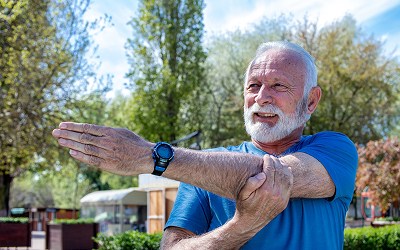We've all had those moments, gazing out a window, dreaming of fantastical abilities – flight, underwater breathing. While we may not possess superpowers, nature has provided us....
Read MoreRevolutionizing Autoimmune Treatment: Targeting Peyer's Patches with UC-MSCs and Exosomes

Understanding Autoimmune Diseases:
Regenerative Medicine: A New Paradigm:
The Gut-Immune Connection and Peyer's Patches:
Intraperitoneal Delivery: A Targeted Approach:
Intraperitoneal delivery, injecting therapeutic agents into the abdominal cavity, offers a strategic way to deliver UC-MSCs and exosomes directly to Peyer’s patches. This method provides:
- Localized Action: Direct access to Peyer’s patches for targeted immune modulation.
- Sustained Release: Gradual release of regenerative agents for prolonged therapeutic
effects. - Reduced Side Effects: Minimizing exposure of non-target tissues.
UC-MSCs and Exosomes: Powerful Immunomodulators:
- UC-MSCs: These cells can suppress excessive immune responses, promote tissue
repair, and regulate immune cell activity. - Exosomes: These tiny vesicles carry bioactive molecules that facilitate intercellular
communication and promote an anti-inflammatory environment.
How They Work:
- Immunomodulation: UC-MSCs regulate T-cell and B-cell responses, and induce regulatory T cells (Tregs).
- Anti-Inflammatory Effects: They release anti-inflammatory cytokines and inhibit inflammatory pathways.
- Tissue Regeneration: They stimulate cell proliferation and differentiation, and exosomes deliver growth factors for tissue repair.
- Immune Privilege: UC-MSCs have low immunogenicity, reducing the risk of immune rejection.
- Exosome-Mediated Communication: Exosomes transfer bioactive cargo, including microRNAs, to regulate gene expression in target cells.
- Paracrine Signaling: They release soluble factors that act on neighboring cells.
The Gut-Brain Axis and Autoimmune Diseases:
Happy Valley's Vision:
Future Directions:
- Personalized therapies tailored to individual patient needs.
- Combination therapies with existing treatments for enhanced efficacy.
- Continued clinical trials to validate safety and effectiveness.
By harnessing the body’s natural healing capabilities and targeting the gut-immune connection,
we aim to transform the lives of individuals living with autoimmune diseases
You Might Also Like
The many benefits of MSCs on bone flaws and cartilage damage
It’s just a fact of life that as you get older, pains start to creep up in places they didn’t used to be. Joints begin to ache from just a little use, and getting up from your favorite chair, or...
Read MoreEmbracing Graceful Aging: The Role of UC-MSCs
As we navigate the journey of aging, maintaining vitality and well-being becomes paramount. At Happy Valley, we're exploring innovative approaches to support healthy physical aging.....
Read MoreRevolutionizing Autoimmune Treatment: Targeting Peyer’s Patches with UC-MSCs and Exosomes
Autoimmune diseases, where the body's immune system mistakenly attacks healthy tissues, present a significant challenge. At Happy Valley, we're exploring cutting-edge regenerative medicine approaches to address these conditions....
Read MoreBeyond Organ Transplants: The Transformative Potential of UC-MSC Transplantation
While organ transplantation has revolutionized medicine, a less familiar yet equally powerful approach is stem cell transplantation. At Happy Valley, we're exploring the vast potential of this therapy to address a wide range of medical conditions....
Read More




